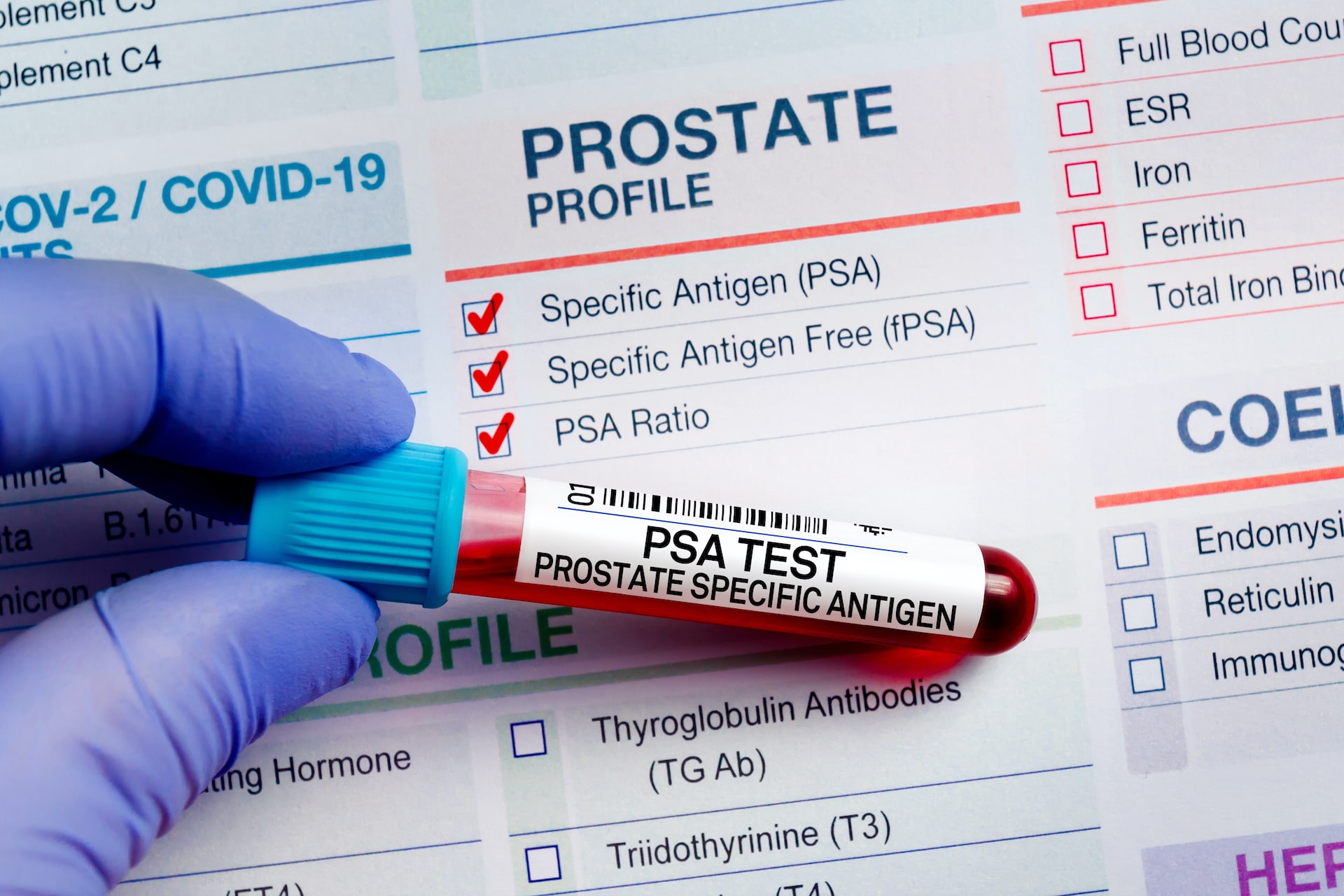Prostate-specific antigen, or PSA, is a crucial marker for men’s health, playing a pivotal role in the early detection of potential prostate issues, including cancer. At KCUC Urology and Oncology, we treat more prostate cancer patients than anyone else in the KC area. We want to share the importance of PSA testing because early detection saves lives. We want to help you understand what a high PSA number does and doesn’t mean, as well as clarify who should consider getting tested.
Why Should You Get Your PSA Level Tested?
Early detection is the best reason to get your PSA level tested. Prostate cancer is one of the most common cancers affecting men worldwide. However, it’s often a slow-growing cancer, and symptoms may not manifest until the disease has progressed significantly. PSA testing is a vital tool in identifying potential issues early on, allowing for timely intervention and potentially life-saving treatments.
Who Should Get Their PSA Level Tested?
Traditionally, PSA testing has been recommended for men over the age of 50, with higher risk groups, such as African American men and those with a family history of prostate cancer, advised to start screening at age 45. However, recent guidelines have recognized the importance of individualized decision-making in consultation with healthcare providers. Factors like family history, lifestyle, and overall health should be considered to determine the appropriate age to commence PSA screening.
The Importance of Knowing Your PSA Number
PSA is a protein produced by the prostate gland, and its levels can fluctuate for various reasons. Understanding your PSA number provides a baseline for comparison in subsequent tests. A consistent rise in PSA levels over time may indicate potential issues, warranting further investigation. KCUC recommends regular prostate cancer screening in men starting at age 40-55, depending on personal risk factors, and continuing every 1-2 years until at least age 70-75 depending on individual overall health and life expectancy. Prostate cancer screening should consist of a PSA blood test and prostate exam.
What to Expect During a PSA Screening
PSA screening is a simple blood test that measures the level of PSA in the bloodstream. It’s a relatively quick and painless procedure that can be performed during a routine checkup. While the test itself is straightforward, interpreting the results requires the expertise of a healthcare professional.
The Importance of Early Detection
Early detection of prostate issues, including cancer, significantly improves treatment outcomes and increases the likelihood of successful intervention. Regular PSA testing allows for the identification of a high PSA number or other abnormalities before symptoms arise, providing a valuable window for proactive measures.
What Does a High PSA Number Indicate?
A high PSA number doesn’t necessarily equate to prostate cancer. Various factors can cause an elevation in PSA levels, such as:
- Benign Prostatic Hyperplasia (BPH): An enlargement of the prostate, common in aging men, can lead to an increase in PSA levels.
- Prostatitis: Inflammation of the prostate can cause a temporary spike in PSA levels.
- Prostate Cancer: Elevated PSA levels can be an early indicator of prostate cancer, prompting further diagnostic tests like a biopsy to confirm the diagnosis.
- Hereditary Factors: Some men may be genetically predisposed to prostate issues. Knowing your family history can help identify potential risks and guide the frequency of PSA testing.
The Hereditary Aspect: Encouraging Family Awareness
Prostate issues, including cancer, can have a hereditary component. Men with a family history of prostate cancer are at a higher risk, and understanding this risk is crucial for timely intervention. It’s important for men to share their PSA results with close family members, especially sons and brothers, as it can provide valuable information for early detection efforts.
Taking Control of Your Health
Understanding what a high PSA number means is a crucial aspect of men’s health. Regular PSA testing, in consultation with healthcare professionals, allows you to take control of your health and detect potential issues early on. Knowing your PSA number, interpreting the results, and being proactive in sharing this information with family members can contribute to a collective effort in the early detection and prevention of prostate issues, ultimately saving lives. By staying informed and taking proactive steps, men can prioritize their well-being and contribute to a healthier future.
KCUC – Prostate Specialists
At KCUC Urology and Oncology, we offer treatments for enlarged prostate, prostate inflammation, and prostate cancer. Learn about the best and latest treatments for enlarged prostate. If you have been diagnosed with prostate cancer, learn about cutting-edge prostate cancer treatment options.
If you are a man over 40 years old and you don’t know your PSA number, make an appointment to have a prostate screening and PSA test. You can either discuss it with your primary care physician or go directly to a urologist.

